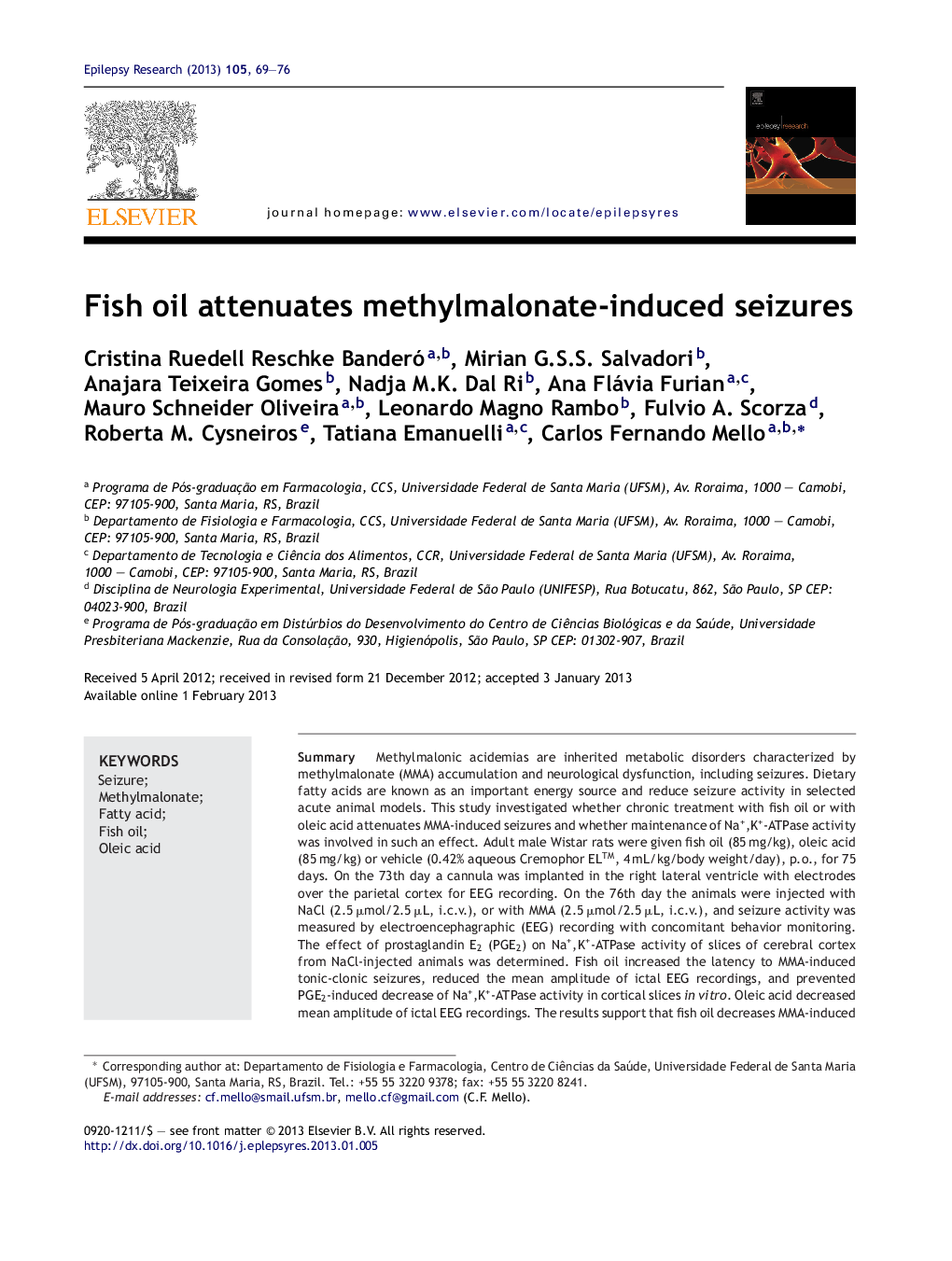| Article ID | Journal | Published Year | Pages | File Type |
|---|---|---|---|---|
| 6015959 | Epilepsy Research | 2013 | 8 Pages |
SummaryMethylmalonic acidemias are inherited metabolic disorders characterized by methylmalonate (MMA) accumulation and neurological dysfunction, including seizures. Dietary fatty acids are known as an important energy source and reduce seizure activity in selected acute animal models. This study investigated whether chronic treatment with fish oil or with oleic acid attenuates MMA-induced seizures and whether maintenance of Na+,K+-ATPase activity was involved in such an effect. Adult male Wistar rats were given fish oil (85 mg/kg), oleic acid (85 mg/kg) or vehicle (0.42% aqueous Cremophor ELâ¢, 4 mL/kg/body weight/day), p.o., for 75 days. On the 73th day a cannula was implanted in the right lateral ventricle with electrodes over the parietal cortex for EEG recording. On the 76th day the animals were injected with NaCl (2.5 μmol/2.5 μL, i.c.v.), or with MMA (2.5 μmol/2.5 μL, i.c.v.), and seizure activity was measured by electroencephagraphic (EEG) recording with concomitant behavior monitoring. The effect of prostaglandin E2 (PGE2) on Na+,K+-ATPase activity of slices of cerebral cortex from NaCl-injected animals was determined. Fish oil increased the latency to MMA-induced tonic-clonic seizures, reduced the mean amplitude of ictal EEG recordings, and prevented PGE2-induced decrease of Na+,K+-ATPase activity in cortical slices in vitro. Oleic acid decreased mean amplitude of ictal EEG recordings. The results support that fish oil decreases MMA-induced seizures. The decreased sensitivity of Na+,K+-ATPase to the inhibitory effect of PGE2in fish oil-treated animals may be related to the currently reported anticonvulsant activity.
